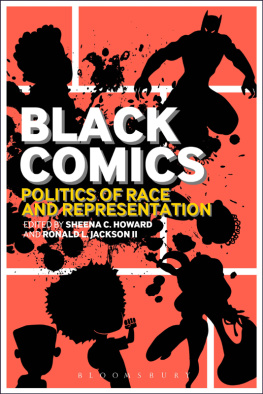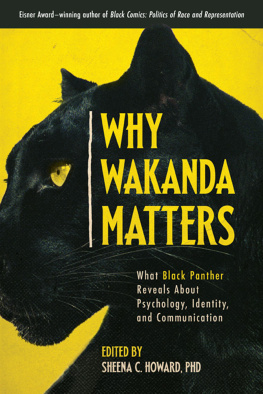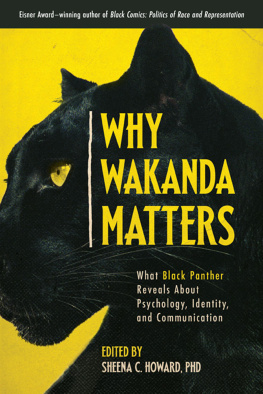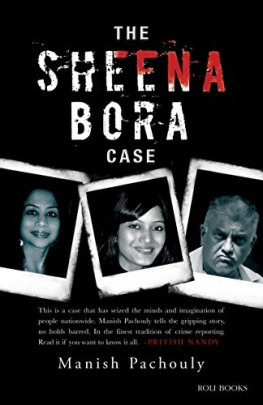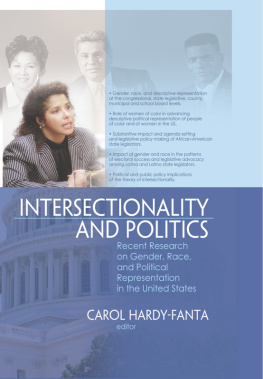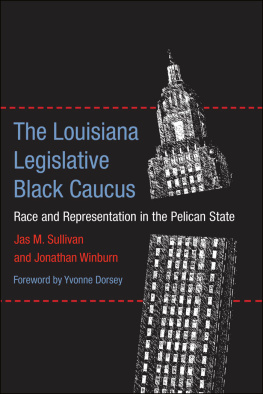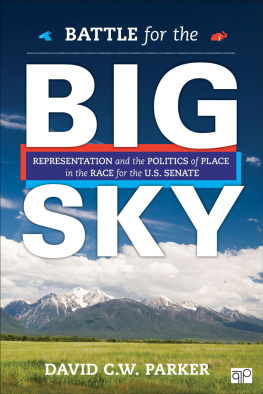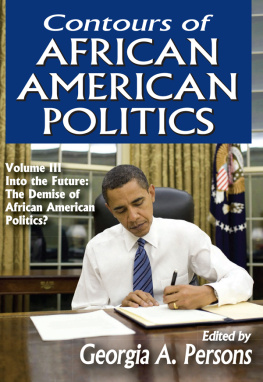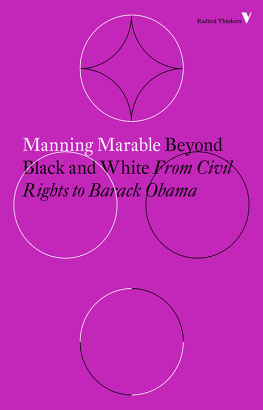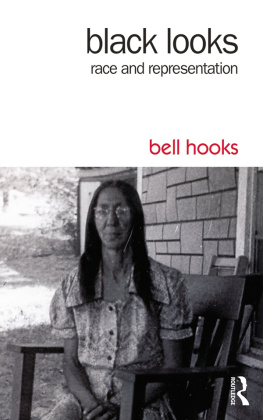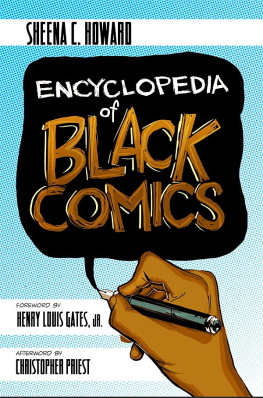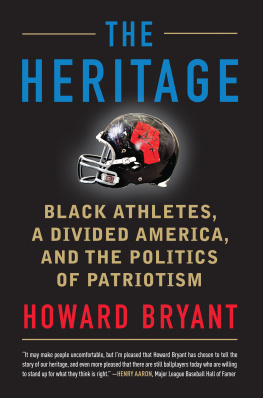Sheena C. Howard - Black Comics: Politics of Race and Representation
Here you can read online Sheena C. Howard - Black Comics: Politics of Race and Representation full text of the book (entire story) in english for free. Download pdf and epub, get meaning, cover and reviews about this ebook. year: 2013, publisher: Bloomsbury Academic, genre: Science / Politics. Description of the work, (preface) as well as reviews are available. Best literature library LitArk.com created for fans of good reading and offers a wide selection of genres:
Romance novel
Science fiction
Adventure
Detective
Science
History
Home and family
Prose
Art
Politics
Computer
Non-fiction
Religion
Business
Children
Humor
Choose a favorite category and find really read worthwhile books. Enjoy immersion in the world of imagination, feel the emotions of the characters or learn something new for yourself, make an fascinating discovery.
- Book:Black Comics: Politics of Race and Representation
- Author:
- Publisher:Bloomsbury Academic
- Genre:
- Year:2013
- Rating:5 / 5
- Favourites:Add to favourites
- Your mark:
- 100
- 1
- 2
- 3
- 4
- 5
Black Comics: Politics of Race and Representation: summary, description and annotation
We offer to read an annotation, description, summary or preface (depends on what the author of the book "Black Comics: Politics of Race and Representation" wrote himself). If you haven't found the necessary information about the book — write in the comments, we will try to find it.
Black Comics: Politics of Race and Representation — read online for free the complete book (whole text) full work
Below is the text of the book, divided by pages. System saving the place of the last page read, allows you to conveniently read the book "Black Comics: Politics of Race and Representation" online for free, without having to search again every time where you left off. Put a bookmark, and you can go to the page where you finished reading at any time.
Font size:
Interval:
Bookmark:
ALSO AVAILABLE FROM BLOOMSBURY
Comic Books and American Cultural History, edited by Matthew Pustz
Comics and the City, edited by Jrn Ahrens and Arno Meteling
Do the Gods Wear Capes?, Ben Saunders
The Power of Comics, Randy Duncan and Matthew J. Smith
Black Comics
Politics of Race and Representation
EDITED BY
SHEENA C. HOWARD AND
RONALD L. JACKSON II

Bloomsbury Academic
An imprint of Bloomsbury Publishing Plc
50 Bedford Square | 175 Fifth Avenue |
London | New York |
WC1B 3DP | NY 10010 |
UK | USA |
www.bloomsbury.com
First published 2013
Sheena C. Howard, Ronald L. Jackson II, and Contributors, 2013
All rights reserved. No part of this publication may be reproduced or transmitted in any form or by any means, electronic or mechanical, including photocopying, recording, or any information storage or retrieval system, without prior permission in writing from the publishers.
The authors have asserted their right under the Copyright, Designs and Patents Act, 1988, to be identified as Authors of this work.
No responsibility for loss caused to any individual or organization acting on or refraining from action as a result of the material in this publication can be accepted by Bloomsbury
Academic or the author.
British Library Cataloguing-in-Publication Data
A catalogue record for this book is available from the British Library.
ISBN: 978-1-4411-3849-1
Library of Congress Cataloging-in-Publication Data
Black comics : politics of race and representation / edited by Sheena C. Howard and Ronald L. Jackson II.
p. cm.
Includes bibliographical references and index.
ISBN 978-1-4411-3528-5 (pbk.) -- ISBN 978-1-4411-7276-1 (hardback) -- ISBN 978-1-4411-6847-4 (ebook (pdf)) -- ISBN 978-1-4411-3849-1 (ebook (epub)) 1. Comic books, strips, etc.--Social aspects--United States. 2. African American cartoonists. 3. African Americans in popular culture. 4. Race in literature. I. Howard, Sheena C. II. Jackson, Ronald L., 1970-PN6725.B56 2013
741.5973--dc23
2012039414
Typeset by Fakenham Prepress Solutions, Fakenham, Norfolk NR21 8NN
For my mom, the first one is for you.
Sheena
To my children, Niyah and Niles, that their imaginations take them to
levels of life success that outmatch their dreams.
Ron
William Foster III
It was the best of times, it was the worst of times
CHARLES DICKENS, A TALE OF TWO CITIES
I t has been said that the more things change, the more they remain the same. But today at least in one particular venue, things are appreciably better. In the landscape of comics, we now can choose from a much more diverse selection of reading. Because of a number of changes in the industry, comic book fans have been gifted on a number of fronts with a point of view that is finally in full color. The number of players of color has grown and the proud history of Black people is finally being told in all its glory.
As a comic book fan and historian, this is the fascinating journey that I have been chronicling for years. Long fascinated with the changing image of people of color in comics, I have found this work a worthy pursuit and one that has lea me to the discovery of many long forgotten efforts, as well as a growing list of new and exciting contemporary creators.
That is why I am so excited about the book you hold in your hands right now. This is a long-awaited and important collection of essays.
I have long believed that it is impossible to truly appreciate literature if you do not have a sense of history. It is not just that certain references will be lost on you as a reader. Everything has a historical context that the reader must be familiar with in order to truly appreciate and process the story being told. Here is your opportunity to obtain that historical reference point.
As the title suggests, this collection presents the reader with two different levels of enlightenment. The famous science fiction writer, Robert A. Heinlein, once said, Politics is the only game for adults. I tend to agree. We may not like what happens in this arena, but we cannot stay out of it if we want to get things done. This then is an examination of the representation of the history of how Black people have been portrayed in the media in general, and in the powerful medium of comics specifically. Race, a topic that has always fought for a proper hearing on the agenda of major issues in America, finally gets a fair hearing here.
Telling a story that must be told, including our unique point of reference, is what this book is all about. We must stand up and tell the story of how a people have been represented, or misrepresented or have been totally left out in the official history of a birth of a country. Here is a collection by scholars who take the mission of bearing this necessary accounting very seriously.
These researchers are paying tribute to a group of artists and writers who toiled, almost anonymously, to reveal the truth about their lives. It is important to note they did so with little or no fanfare when the population at large did not offer them much support. They have looked back to examine trends that have changed the way people of color are viewed in comics.
The power of the written word combined with drawn images is still to be discovered by folks from every generation. It is still hard for me to grasp that there are those who have not yet been exposed to the brilliant political cartooning of Ollie Harrington (Bootsie) or the esoteric art of George Herriman (Krazy Kat).
We can now more appreciate the brilliance of innovators like Morrie Turner, whose Wee Pals cartoons became the first integrated strip in American history, or Barbara Brandon, a second-generation Black syndicated cartoonist. We can celebrate the story of Jackie Ormes, the first female African American syndicated cartoonist, and her signature character, Torchy Brown. We can share with our children the pioneering comic books of Bertram Fitzgerald, who single-handedly created a series of comic books that documented the history of Black people in America (Golden Legacy).
The landscape on the comics canvas has truly broadened to include the works of past comic strip and comic book pioneers like E. Simms Campbell (Esquire Magazine), Alvin Hollingsworth (Negro Romance), Charles Johnson, Buck Brown, Matt Baker, Tom Floyd (Blackman), and George Winners. These are individuals who literally and visually altered the worldview with their creative wit and unique points of view.
We can revel in the outstanding work of contemporary artists and writers such as Alex Simmons (Blackjack), Ho Che Anderson (King), Kyle Baker (Nat Turner), Kevin Taylor (Girl), Aaron McGruder (The Boondocks), Jerry Craft (Mamas Boyz), and so many others whose combined body of work has forever changed the way people of color are perceived by the world at large.
But it is not just a time to pay tribute to our noble past and to the men and women artists and writers who were determined to leave footprints on the pages of time. We can also promote the ever-expanding presence of women of color both as characters and creators, and talented artists and writers of every ethnicity who appreciate our stories and tell them with style and panache. All this speaks to it being the best of times.
Next pageFont size:
Interval:
Bookmark:
Similar books «Black Comics: Politics of Race and Representation»
Look at similar books to Black Comics: Politics of Race and Representation. We have selected literature similar in name and meaning in the hope of providing readers with more options to find new, interesting, not yet read works.
Discussion, reviews of the book Black Comics: Politics of Race and Representation and just readers' own opinions. Leave your comments, write what you think about the work, its meaning or the main characters. Specify what exactly you liked and what you didn't like, and why you think so.

